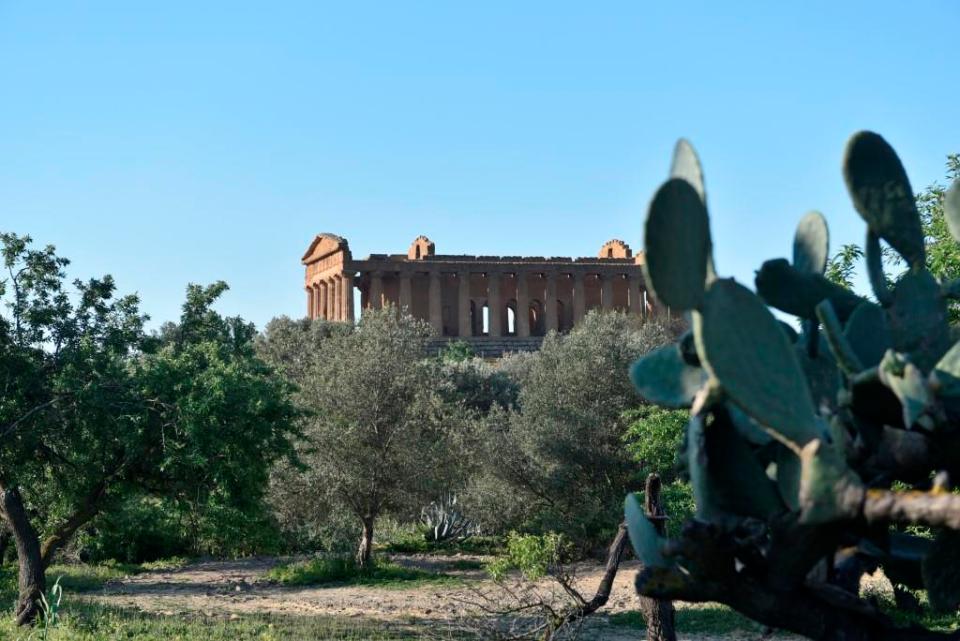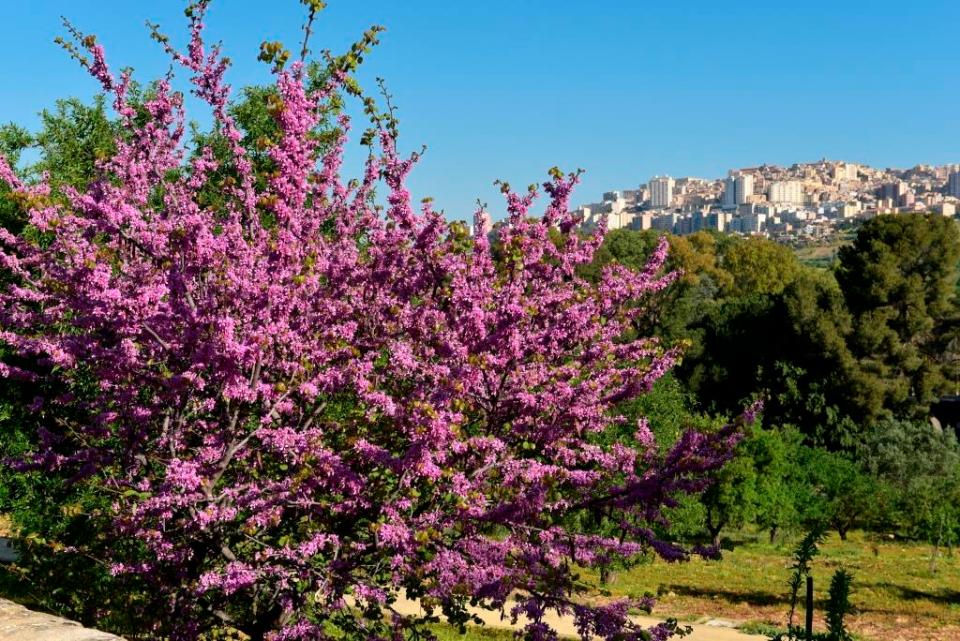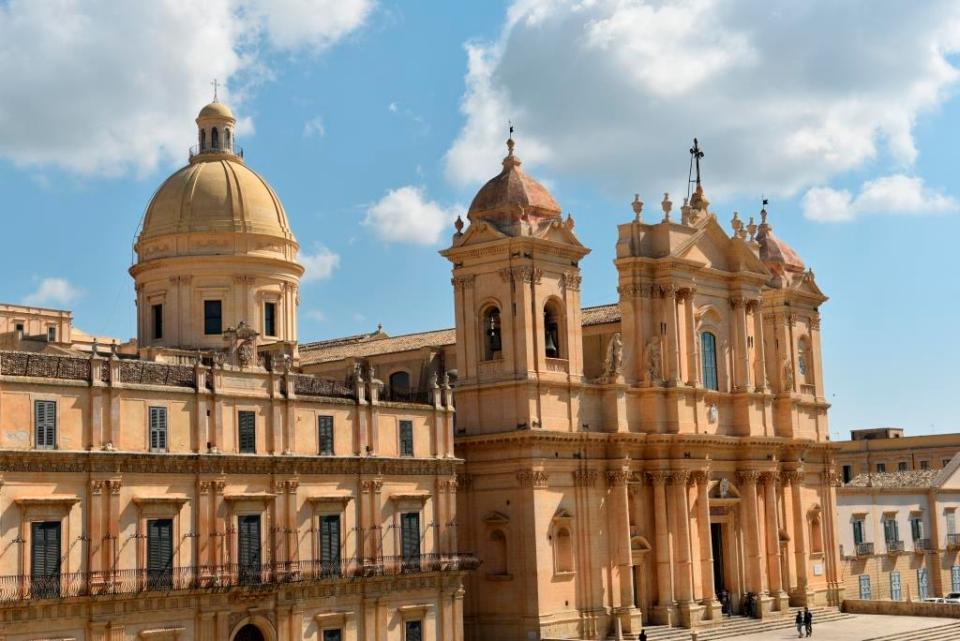
Dan Will Travel
I'm Dan and I WILL Travel
Outside of the modern city of Agrigento lies the Valley of the Temples, or Akragas, home to what are thought to be the finest Greek temples remaining outside of Greece itself.
I was able to book into the Hotel Villa Athena right on the grounds of the archeological park. This hotel had its own private entrance to the park, and great views of the temples from the hotel.
The three main temples are the Temple di Hera from the 5th century BC, the extremely well preserved temple della Concordia built around 430 BC, and the temple di Ercole from the 6th c BC.
It is quite something to drive into the area, and see these 3 temples high on a bluff in front of you. Of course, no shoulder to pull over to park and photograph, but as you see I was able to get many photos while there for a few days.
I have driven in Italy many times in the past, but this was my first time using a GPS. (I am sort of amazed that I did it without one, frankly!) Some of you have driven here as well, and others will in the future. Here are a few tips that I have learned this time and in the past.
The GPS is a lifesaver if you watch it. Not so much so if you only listen as her computerized Italian is very bad. She will say, “In 600 meters turn left onto Via Giuseppe Garibaldi.” (Trust me, this is pronounced so poorly that you would never understand it.) But, her instructions are basically worthless anyway, since in Italy, the streets are essentially not marked by name. (Yes, technically they are if you find the correct building and look up above the first floor, there will be the name of the street carved into marble of the same color as the building. Now, try finding and reading that while driving!) Now, why is this important you say? Well, in ancient towns of say 20,000 people or so, you will make 15+ decisions to get through town. A city of 50,000? Maybe over 30 “choices.” When the town is 500-2,000 years old, it is not neatly gridded. There are no straight through streets.
What I learned long ago, was that the best way is to think like an Italian. If I am in Ragusa, and want to go to Gela far away, what would they think is the next significant town along the way out of Ragusa towards Gela? That is what will be marked at any junction, or roundabout. Ok, sounds easy, huh? As you enter the roundabout, there is a pole with 15 towns on it. Some left, some right, some straight ahead. So, as you are dodging cars all over the roundabout, you are scanning that sign to find “your“ town. Remember, they all know where they are going and they want to get there fast. Ok, found it. 9th one down the signpost. But it’s too late, as you have passed that turnout. Ok, just take another one and turn around you say. Well, Italian roads have zero shoulders and few places to execute a turn around. But, eventually you get that done and go back into that roundabout to start all over again. Maybe you will be successful this time! And, the next roundabout is only 1 km away. The next decision looms……..
Autostradas (freeways) are “fun” too. At least the Italians understand, unlike many Americans, that the left lane is for passing only. Here is the added excitement of the intermingling of tiny underpowered trucks doing maybe 51 mph in the right lane and the drivers in the left lane doing 100 mph. Yes, they do go that fast. So, years ago, before moving left to pass, I learned to carefully look at the left lane in the mirror. If the approaching car has a Mercedes emblem, do not go into their lane. They will be flying past you very shortly.
But, once you get into the rhythm of it, it is really fun. They are very predictable drivers. They always seem to do what you expect of them. And, you get a lot more aggressive than you would ever be in the US. It’s survival mode.
Sicily is famous for its Baroque architecture, and some hill towns are almost outdoor museums of this architecture. 3 were close to Siracusa and highly recommended, (each a Unesco world heritage site) so I took a day to drive to each. This style of architecture was very popular in Italy in the early 1700’s and Sicily has so much of it due to a hugely devastating earthquake in 1693. It seems like essentially everything was fully destroyed, so entire towns had to be rebuilt, and thus the preponderance of this “hot new style.”
First was Noto, with its famous main street, lined with elegant Chiesa’s, palazzo’s and piazzas. As it all Italian towns, about every 4th building is a church. Why, I have never understood, but I guess back then they were all needed to serve the people.
Then, it was on to Modica, a bit different than most as it lined a valley rather than being perched on a hill. The Duomo here was 250 steps up the hill from the main street, but what a view that gave it!
Lastly, Ragusa Ibla. This was the original Ragusa, but it was fully destroyed in 1693, so they build a modern Ragusa Superiore further up the hill. But, then they did decide to rebuild Ragusa Ibla, and it was magical. This is where I stayed overnight, in a very nice hotel conversion of a convent for nuns. The 40 nun “caves” became about 23 hotel rooms. I had most of 2 “caves” but it was still small, trust me. But a great view overlooking the valley below and an easy walk throughout the old town.
















































